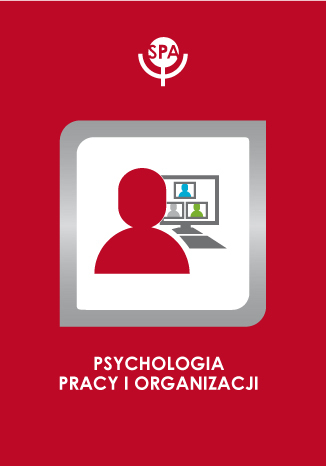Array
(
[id] => 421
[date] => 2019-03-14
[doi] => 10.14691/CPPJ.24.1.47
[title] => Wpływ czasu pracy i jego kontroli na relacje między życiem osobistym i zawodowym
[title_en] => THE EFFECT OF WORKING TIME AND ITS CONTROL ON PERSONAL AND PROFESSIONAL LIFE
[authors] => Agnieszka Lipińska-Grobelny
[abstract] => Striking a satisfying work-life balance is one of the most important challenges of our times. In the past, researchers have paid more attention to the negative impact of work on the family. Today, it is recommended that the work-family relationship is not only seen in two directions, but also from two perspectives of research: negative and positive. The aim of this study is to present what is the relation between work-family/family-work conflict, work-family/family- work positive spillover and working time and its control. A group of 550 people were asked to complete a survey, the questionnaire Work-Family (W-F) and Family-Work (F-W) Conflict by Netemeyer, Boles and McMurrian and the Positive and Negative Work-Family and Family-Work Spillover by Moen, Kelly and Huang. The results indicate that working time increases W-F conflict, W-F/F-W negative spillover and weakens W-F positive spillover. Flextime control as opposed to leave control does not directly affect (except for F-W conflict) or interfere with working time on the relationship between personal and professional life.
[abstract_en] => Striking a satisfying work-life balance is one of the most important challenges of our times. In the past, researchers have paid more attention to the negative impact of work on the family. Today, it is recommended that the work-family relationship is not only seen in two directions, but also from two perspectives of research: negative and positive. The aim of this study is to present what is the relation between work-family/family-work conflict, work-family/family- work positive spillover and working time and its control. A group of 550 people were asked to complete a survey, the questionnaire Work-Family (W-F) and Family-Work (F-W) Conflict by Netemeyer, Boles and McMurrian and the Positive and Negative Work-Family and Family-Work Spillover by Moen, Kelly and Huang. The results indicate that working time increases W-F conflict, W-F/F-W negative spillover and weakens W-F positive spillover. Flextime control as opposed to leave control does not directly affect (except for F-W conflict) or interfere with working time on the relationship between personal and professional life.
[keywords] => he amount of working time, leave control, flextime control, W-F/F-W conflict, W-F/F-W positive and negative spillover
[keywords_en] => he amount of working time, leave control, flextime control, W-F/F-W conflict, W-F/F-W positive and negative spillover
[file_path] => /files/articles/2018-24-wpyw-czasu-pracy-i-jego-kontroli-na-relacje-midzy-yciem-osobistym-i-zawodowym.pdf
[okladka] => psychologia_pracy_i_organizacji.jpg
[rocznik] => Rocznik: 2018 Tom: 24 Numer: 1
[strony] => 47-55
)










 Pobierz pełny tekst
Pobierz pełny tekst



